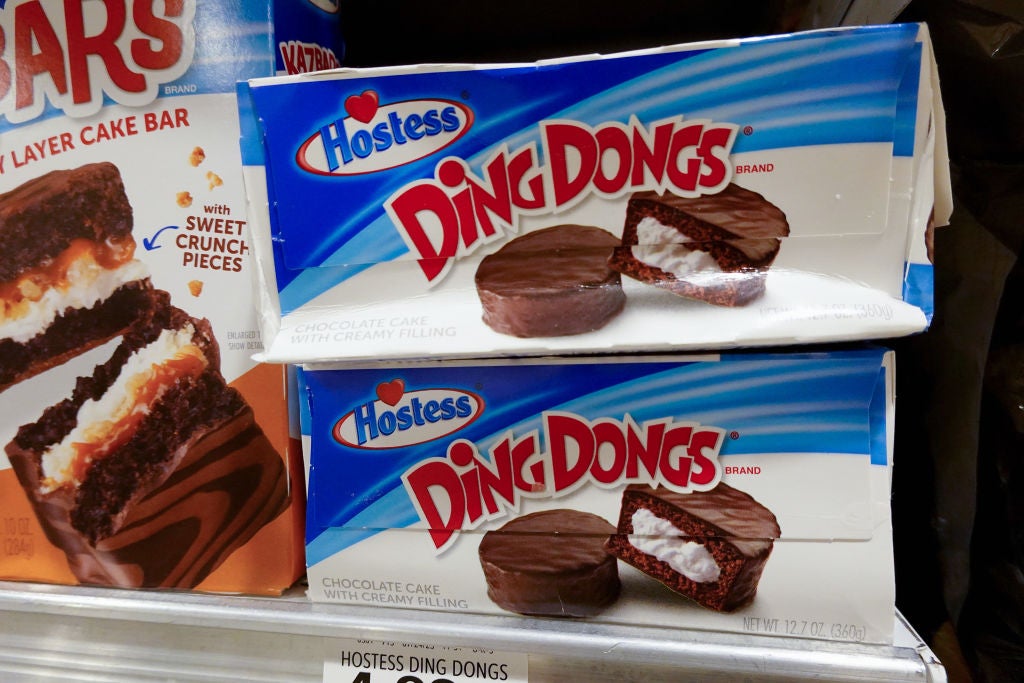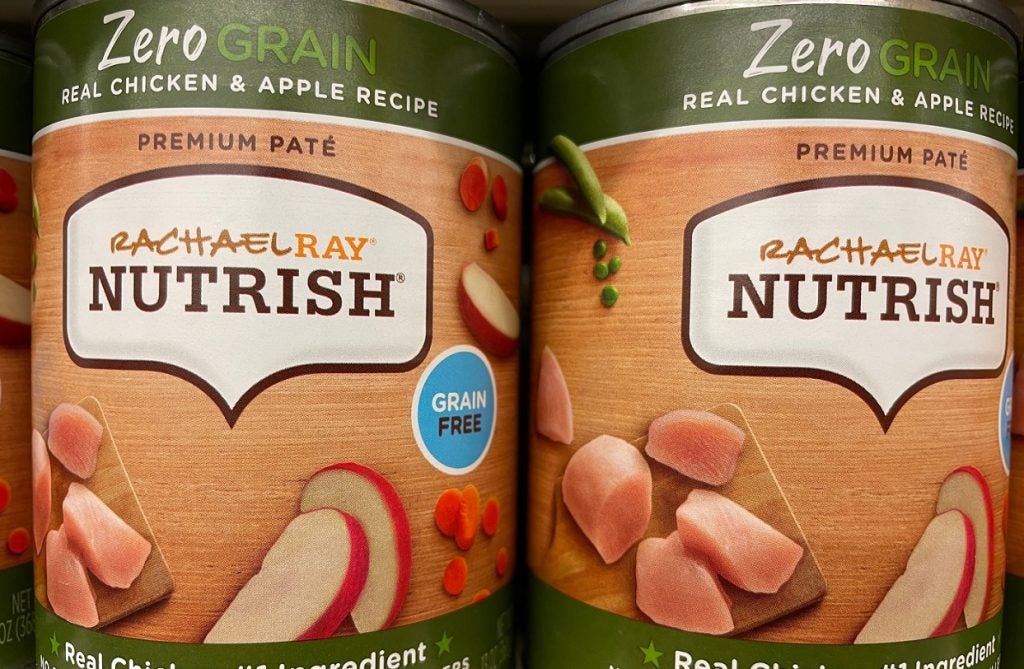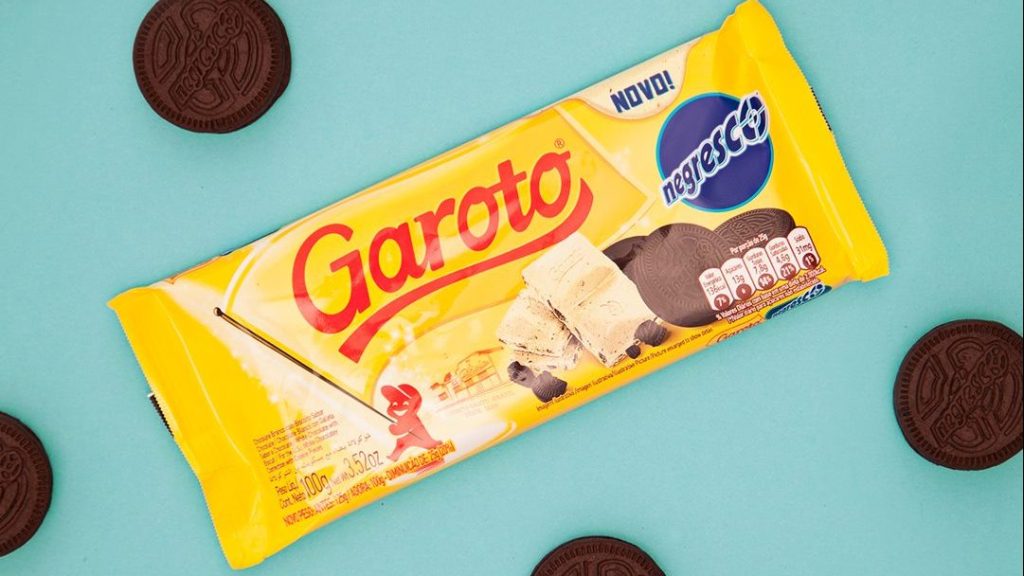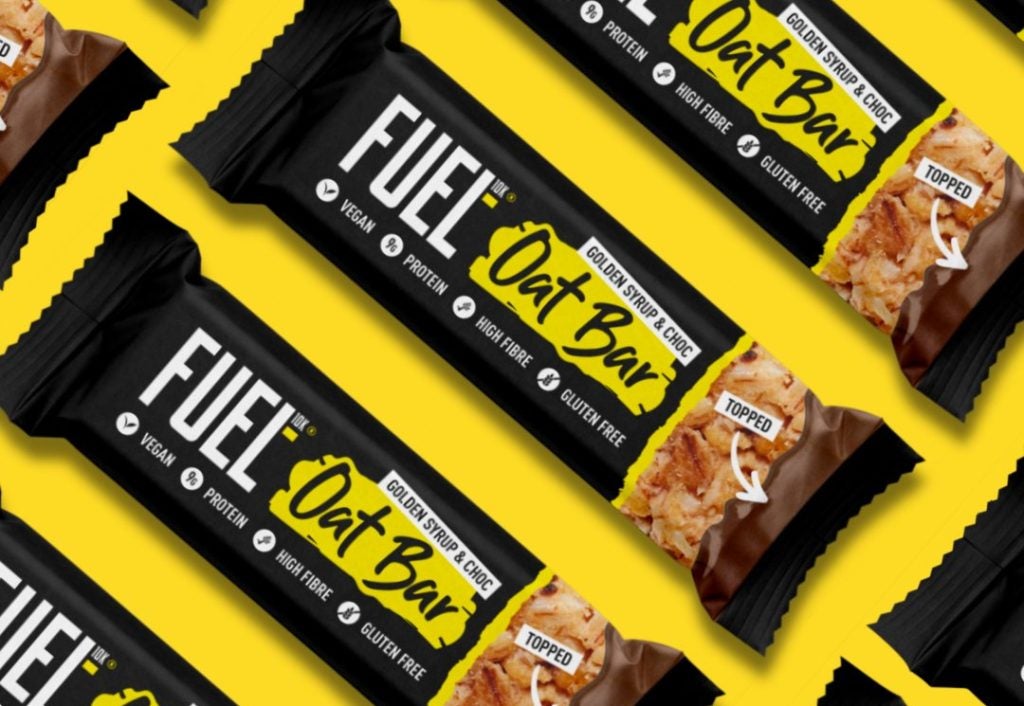
Our annual look at the global food industry through the prism of M&A identified major manufacturers making repositioning plays and new trends emerging.
It was a year in which packaged food heavyweights sought to redefine their portfolios through acquisitions or disposals and in which pet food and high-end chocolate competed with an ongoing interest in health and wellness to become dominant deal trends.
But, and it may seem counter-intuitive, as Rabobank’s Gino Chin points out, “snacking and indulgence continues to be an area which is performing well and where we’ve seen several noteworthy deals”.
Chin, global co-head for the consumer sector at the Netherlands-based financial services group Rabobank, says: “JM Smucker announced the acquisition of Hostess Brands, owner of the well-known Twinkies brand, for an approximate enterprise value of $6bn – a multiple of around 17.2x the adjusted EBITDA. And Mars reached an agreement to acquire Hotel Chocolat for a premium of almost 170% to the previous closing price.
“Private equity also continues to invest in this long-term trend. CapVest, through its Second Nature Brands investment, acquired Sahale Snacks from JM Smucker and CD&R announced the acquisition of Shearer’s Foods, a leading contract manufacturer and private-label supplier serving the snack industry in North America.”
Chin also notes that M&A activity in the pet-food sector remained strong with incumbents continuing to build scale and several new entrants.
Access the most comprehensive Company Profiles
on the market, powered by GlobalData. Save hours of research. Gain competitive edge.

Company Profile – free
sample
Your download email will arrive shortly
We are confident about the
unique
quality of our Company Profiles. However, we want you to make the most
beneficial
decision for your business, so we offer a free sample that you can download by
submitting the below form
By GlobalData
“Areas that see the most activity are private-label, fresh pet food and treats and supplements,” he explains.
“Post Holdings is one of the new entrants in the pet category, making two sizeable acquisitions in 2023. It reached an agreement to acquire selected pet-food brands from JM Smucker for $1.2bn and, later in the year, announced the acquisition of Perfection Pet Foods, a California-based contract manufacturer and private-label supplier in pet food, for $235m in October.
“Private-equity investors have continued investing in the pet-nutrition category as well, with several financial sponsors making notable platform investments. In August, for example, PAI Partners announced the acquisition of Alphia, one of the largest pet food co-manufacturers in North America.”
In line with the broader market, M&A activity in the global food industry in 2023 felt the impact of the challenging macroeconomic climate, heightened inflation and rising interest rates.
However, Chin adds: “While volumes overall have been down, there are categories which have seen continued activity and several themes that persist.”
January
One of the first deals of the year saw US food giant Mars invest in vegan pet-food firm The Pack.
Pet food was moving into new niches and the attractiveness of this to investors or acquirers would become one of the deals stories of the year.
In this instance, Mars joined other investors in a £835,000 (then $995,514) seed-funding round for UK-based The Pack. It invested through its Mars Petcare division’s Leap Ventures accelerator.
The Pack, founded by Damien Clarkson and Judy Nadel in 2017, offers meat-free canned dog-food products including No-Moo Ragu, No-Cluck Casserole and No-Fishy Dishy.
Another company to use its venture capital arm to target new, exciting areas was UK organic dairy business Yeo Valley.
It used its venture capital fund to back local snack brand The Curators in
its acquisition of UK snacks peer Cheesies.
The Curators was started in 2018 and sells high-protein products – another fast growth area this year. These are listed in major UK supermarkets
Australia’s Bega Cheese, meanwhile, had reached an agreement with Vitasoy International Holdings over the price of its stake in their Hong Kong-based joint venture.
Bega Cheese said in November the A$27.5m (then US$17.5m) pledged by Vitasoy subsidiary Vita International for its 49% interest in the plant-based beverages venture was “significantly” undervalued.
But a new offer of A$51m had been made and accepted by publicly-listed Bega Cheese for the minority share in the Vitasoy Australia Products partnership.
Vegemite manufacturer Bega Cheese became a partner in the venture alongside Vitasoy as part of the acquisition of Lion Dairy & Drinks in 2021.
February
In an all-US deal, Flagship Food Group acquired Yucatan Foods, adding guacamole and dips to the firm’s Hispanic foods portfolio.
Santa Maria, California-based Yucatan is a subsidiary of Curation Foods, which in turn comes under the umbrella of US health and wellness business Landec, renamed last year to Lifecore Biomedical. Yucatan sells Mexican-style guacamole under its namesake brand and also the Cabo Fresh line in retail stores and foodservice outlets in the US and Canada.
A big early-year deal saw Post Holdings entering the US pet-food market by acquiring several brands from local manufacturer JM Smucker.
The deal was worth around $1.2bn and centred on six brands – Rachael Ray, Nutrish, 9Lives, Kibbles’n Bits, Nature’s Recipe and Gravy Train. Together, those brands generated $1.4bn in net sales in the year to 30 April 2022.

“We expect this acquisition to continue our history of creating value with a buy-and-build approach to categories. These iconic brands are ideally suited to this strategy,” Post president and CEO Rob Vitale said.
Also entering new territory, if on a smaller scale, was UK food company Samworth Brothers, which invested in the plant-based meat start-up Tiba Tempeh.
It suggested the investment would support Tiba Tempeh’s expansion throughout the UK and Europe.
Tiba Tempeh was founded in 2019 by Alex and Ross Longton after noticing tempeh’s higher protein levels than tofu.
In Europe, to comply with the terms under which German dairy major Müller would be allowed to buy a portion of peer FrieslandCampina’s German assets, it agreed to divest two brands.
Due to competition regulations, Müller agreed to find a buyer for FrieslandCampina’s milk-based brands Tuffi and Landliebe.
The deal with FrieslandCampina then came into force on 1 March.
March
In March, Nestlé, the world’s largest food company, took a minority stake in German nutrition-based start-up YFood, a producer of meal-replacement snack bars, drinks and powders.
Munich-based YFood was founded in 2017 by Ben Kremer and Noël Bollmann and supplies customers in Europe, covering over 25 countries. The start-up will continue to be headed by the two founders.
Another European food major looking closely at future trends was Paulig.
The Finland-based group invested in UK cocoa-free chocolate firm WNWN through its venture arm PINC as part of a $5.6m Series A investment round. London-based WNWN claims to be the first company to bring cocoa-free chocolate to market.
Chocolate would become a big M&A play this year but it was pet food that was the big story this month.
UK-based pet-food business Scrumbles, which produces and sells “gut-friendly” pet food, received £6m (then $7.3m) in funding from investment company BGF while US pet food start-up Bundle x Joy closed a $1m seed round led by an accelerator in which Mars is a partner.
Bundle x Joy said it planned to use part of the funds to expand distribution, enhance its digital capabilities and invest in growing its team.
Mars was busy on the pet-food front this month as it joined fellow US food heavyweight General Mills in investing in New York-based cat food start-up Smalls.
General Mills’ venture capital arm 301 Inc and the Mars-affiliated Companion Fund were involved in a $19m funding round.
Smalls, which says cats have been “chronically underserved and underinvested in” said it will use the investment to launch into retail for the first time and work on NPD.
April
Danone demonstrated its desire to move into new and interesting areas this month with two deals.
Via its venture-capital arm Danone Manifesto Ventures, the French dairy giant invested in cell-based dairy and infant-formula manufacturer Wilk Technologies.
Israel-based Wilk, which launched in 2020, produces cultured human breast milk and animal milk.
Its second deal was also an investment in an Israeli firm. It acquired a stake in animal-free dairy business Imagindairy, which makes its products through a technique called precision fermentation.
The investment was again made through Danone Manifesto Ventures.
Also looking at building its exposure to innovative areas was Bel Group.
The French cheese producer Bel Group invested in AI-powered US start-up Climax Foods and plans to develop plant-based versions of its brands.
Associated British Foods (ABF), meanwhile, was investing in German food start-up KoRo as the company’s Series B funding pot reached €75m (then $82.2m).
The Patak’s sauces and Kingsmill bread owner was part of a €20m funding round in the business which produces nut butters and snacks.
May
Mexico’s Grupo Bimbo expanded its North American presence with the purchase of rye bread producer Natural Bakery in Canada.
The world’s largest bakery business added to a recent acquisition spree which included deals in Romania and the UK.
Also looking for new areas of growth was Belgium’s Greenyard, which acquired Netherlands-based dairy-free ice-cream maker Gigi Gelato.
Greenyard, a Brussels-listed supplier of fresh and frozen fruit and vegetables, described Gigi Gelato as a “game-changing brand” in the gelato category. Its products are 100% plant-based.
Staying on the plant-based theme, US-based Wicked Kitchen snapped up local peer Current Foods for an undisclosed sum.
The deal marked Wicked Kitchen’s entry into plant-based sushi.
June
Chocolate was big news this month.
The UK’s Montezuma’s Chocolate was scooped up by local business Paramount Retail Group, returning its husband-and-wife founders Simon and Helen Pattinson to the top of the chocolate brand as part of the deal.
Having sold the company to Scotland-based investment firm Inverleith in 2018, the Pattinsons said they wanted to “quickly restore the company to its former glory”.
Belgian investor Verlinvest, meanwhile, upped its stake in Dutch ethical chocolate manufacturer Tony’s Chocolonely.
It increased its holding as part of a €20m (then $21.8m) funding round from existing shareholders.
And Nestlé got the all-clear to buy Brazilian chocolate maker Garoto – after 20 years
It struck a deal to acquire Garoto in 2002 but had been awaiting full competition clearance.

Two other heavyweights were also in action this month.
Unilever, the world’s largest ice-cream maker, extended its portfolio of frozen desserts with the acquisition of US-based frozen Greek yogurt brand Yasso.
The UK company said the deal aligned with its “premiumisation strategy” for its ice cream business.
And US snacks heavyweight PepsiCo bought the remaining 50% of South African nutritional cereal maker Future Life Health through its subsidiary Pioneer Foods.
Pioneer had acquired 50% of Future Life in 2015 and was now acquiring Future Life founder Paul Saad’s remaining stake for an undisclosed figure.
July
Things quietened down at the height of summer, as might be expected, but it’s worth mentioning a couple of deals that did get away.
Private-equity firm Brynwood Partners struck a deal to buy the Marie’s salad dressings brand and the Dean’s dip business from US manufacturer Ventura Foods.
Brynwood has set up West Madison Foods, a new Chicago-based vehicle to own and run the assets.
And demonstrating that indulgence still has a future in a food industry that sometimes appears obsessed with health and wellness, Ferrara Candy announced it was to buy Brazilian sweets maker Dori Alimentos.
US confectioner Ferrara described Dori Alimentos as “a great fit … with a complementary portfolio of candies”.
August
A mega-deal was revealed this month when Campbell Soup Co. announced its intention to buy US peer Sovos Brands.
The deal, which values Sovos Brands at $2.7bn, would give Campbell brands including Rao’s sauces.
Campbell CEO Mark Clouse said: “This acquisition fits perfectly with and accelerates our strategy of focusing on one geography, two divisions and select key categories that we know well.”
However, the deal was not over the line at the time of wiring as it is subject to a Federal Trade Commission anti-trust review.
French dairy major Lactalis entered the North American desserts category for the first time with the acquisition of Marie Morin Canada for an undisclosed sum.
Québec-based Marie Morin Canada makes French-style desserts such as crème brûlée, chocolate mousse and cheesecakes.
There was a leftfield deal for Unilever – albeit within the popular better-for-you space – when it backed Indian healthy gummies start-up What’s Up Wellness.
It led a Rs140.4m (then $16.9m) seed investment round in in the Gurugram-headquartered start-up via its Unilever Ventures arm.
Down Under, Bega Group bought TasFoods’ dairy brands in an all-Australian deal.
The Bega Cheese owner said the A$11m (then $7.1m) acquisition was “consistent with our strategy to build our portfolio of branded products”.
And pet food was still proving popular with investors as private-equity firm PAI Partners agreed to acquire North American pet food manufacturer Alphia from J.H. Whitney Capital Partners.
September
US food manufacturer JM Smucker was involved in some serious portfolio re-shaping this month.
In the biggest packaged food deal of the year it confirmed it was buying local peer Hostess Brands for $5.6bn.
The Smucker’s jam and Jif peanut butter brands owner’s CEO Mark Smucker said buying Twinkies maker Hostess was “a unique opportunity to accelerate our focus on delighting consumers with convenient solutions across different meal and snacking occasions”.
Smucker recouped a small part of the money it had spent by selling its Sahale Snacks business to Second Nature Brands for $34m.
It said the disposal was consistent with its “portfolio and resource optimisation” plan.
US private-label heavyweight TreeHouse Foods was also re-shaping its portfolio.
It offloaded its snack-bar business to US peer John B. Sanfilippo & Son in a deal worth approximately $63m in cash.
Nestlé was also busy this month, selling its Palforzia peanut allergy business to biopharmaceutical company Stallergenes Greer and, in another chocolate deal, striking a deal to buy a majority stake in Brazil-based high-end chocolate business Grupo CRM.
Grupo CRM operates a direct-to-consumer model and has more than 1,000 chocolate boutiques in Brazil.
October
Weetabix owner Post Holdings made another acquisition in pet food, inking a deal to buy US-based Perfection Pet Foods for $235m.
California-based Perfection produces private-label pet food and snacks and also provides a co-manufacturing service.
US meat major Tyson Foods, meanwhile, was taking a punt on future trends by investing in Netherlands-based insect-protein supplier Protix. It plans to build a partnership US production facility primarily to serve the pet-food market.
The UK’s Premier Foods expanded its breakfast range with the acquisition of local brand Fuel10K for £34m (then $41.2m).

Fuel10K was developed by UK distributor Fresh Marketing, with a range of cereal, snack bars and milk drinks supplied under the brand to major UK retailers.
Finally, JM Smucker and TreeHouse Foods carried on with their portfolio re-shaping with the latter buying its US peer’s Canada-based pickle brands.
The deal, for around $20m, saw TreeHouse gain the Bick’s pickles, Habitant pickled beets, Woodman’s horseradish and McLarens pickled onions brands.
November
Despite reports of a slowdown in the category, plant-based meat alternatives remain a popular investment area for those eyeing the long term.
This month, German food conglomerate Pfeifer & Langen took a majority stake in local sausage and plant-based meat business Rügenwalder Mühle.
Pfeifer & Langen, best known as a sugar manufacturer, and Rügenwalder Mühle both have plant-based meat alternative products in their portfolio and it is the desire to expand in this area that has brought the businesses together.
Meanwhile, there was celebrity endorsement of US condiments company Truff when Kim Kardashian’s private-equity firm Skky Partners acquired a majority stake in the business.
The condiments brand produces truffle-infused products such as hot sauce, pasta sauce, mayonnaise, oil and salt. It was founded in 2017 by Nick Ajluni and Nick Guillen with a direct-to-consumer focus but has since expanded to include major retailers such as Whole Foods, Target and Publix.
Kardashian, said Truff is “exactly the kind of business that embodies what we were looking for”.
Chocolate was at the heart of the major deal of the month when Galaxy and Snickers owner Mars pounced for the UK retailer of up-market chocolate products business Hotel Chocolat for £534m (then $662.4m).
Mars, one of the world’s largest chocolate makers, and Hotel Chocolat are “highly complementary”, Andrew Clarke, the president of Mars’ snacking business, said.
UK-based meal replacement company Huel said it was aiming to drive its “global expansion” after receiving backing, of an unknown quantity, from US investment bank Morgan Stanley.
Meanwhile, B&G Foods announced the sale of the ambient element of its Green Giant vegetable product line in the US to Seneca Foods for an undisclosed sum.
Seneca, a supplier of branded and private-label packaged fruit and vegetables, has been the long-time co-manufacturer for shelf-stable Green Giant products in the US.
December
Investors continued to back cultivated-meat firms this year and, as 2023 was coming to an end, US-based Clever Carnivore raised $7m in a funding round led by New York- and Hong Kong-based Lever VC.
The company said it plans to use the money to expand its operation and scale-up the production of its meat, grown in a lab from animal cells. It is currently producing cultivated pork sausage, with plans to unveil its prototype product, the Clever Bratwurst, in early 2024.
Away from the lab, investor CD&R inked a deal to acquire US snacks major Shearer’s Foods. No transaction price was disclosed but earlier reports had speculated a deal for Shearer’s could be worth as much as $3bn.
Shearer’s Foods, founded in the early 1900s, co-manufactures crisps, tortillas, popcorn and pork rinds.
The year ended as it had begun, with pet-food deals to the fore.
My Perfect Pet was acquired by US-based Antelope, a ‘buy-and-build’ pet-food company.
And the UK’s Assisi Pet Care snapped up local peer Burns Pet Nutrition.
Assisi, owned by US private-equity firm Wind Point Partners, took control of a business specialising in foods for pets with allergies and intolerances.
